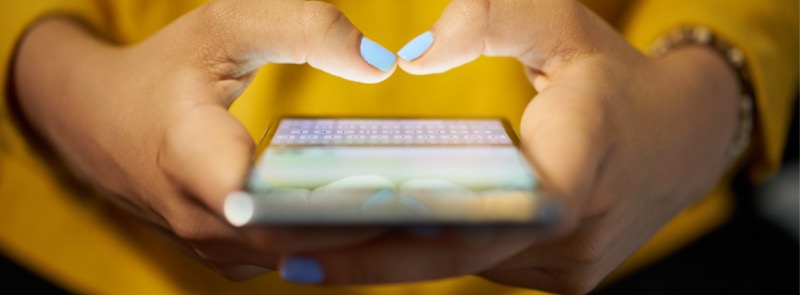
Quick tips for protecting the personal info on your phone
Quick tips for protecting the personal info on your phone
Smartphones give us a lot of freedom and make our lives more efficient, but they also present their own set of challenges when it comes to data security. Protect your information by following these simple tips.
Hold on to it!
When you are in a public area, don’t set your phone down or leave it exposed in an open bag. It only takes a second for a thief to walk off with your little lockbox of personal information. If a stranger asks to borrow your cell phone, offer to help them find a public phone they can use instead.
Lock it up
Whether it’s with a password, a thumbprint or face recognition, using a unique entry requirement will make it difficult for anyone else to access your phone’s data. It might feel like an inconvenience now, but if you lose your phone or have it stolen, you’ll be glad to know the person who has it doesn’t also have free reign over your sensitive data. Make your password tough to guess for even someone who knows you well.
Slow down a bit
When you’re pinballing around between apps, the internet, your text messages and any number of other items, there’s a tendency to click without a lot of thought. But it’s important to slow down and be careful about the links you click on. If you don’t recognize the sender of a link in a text message or email, you’re better off leaving it alone.
Use extra security
While you’re loading up on games, tools and other cool apps, be sure to also get yourself some security software designed for smartphones. On top of that, check regularly for updates that will keep you ahead of the criminals trying to pry into your phone. Make sure anything you download to your phone is from a trusted source.
Be network careful
If you’re tech savvy, you may know that you can potentially save money by using a public wi-fi network when it’s available instead of your phone’s data service. However, it’s best to avoid using these networks when you plan to access sensitive information of any kind.
Mind what’s in your phone
With smartphones becoming more and more inextricably intertwined into your life, it may seem like it makes sense to keep your account numbers, passwords and other hard-to-remember information in a notepad document on your phone for easy access. But you should consider this only as safe as having the same information on a piece of paper loose in your pocket; it could very easily end up somewhere you don’t want it to be.
Know the origin of your apps
The Apple App Store and Google Play are always vetting the new apps that they make available on their site. However, be wary of any apps offered by third-party vendors. The best way to avoid downloading an app with malware is to stick with downloading apps from your specific app store and never download apps that are offered via text message.
Keep your apps and OS up to date
When software companies update their apps and operating systems, it is not only for the new emojis or features. Often the updates fix bugs and increase the current security of the app itself. When you see the notification on your phone for an app update, don’t hold off too long from doing it or your phone may be more vulnerable.
Clean it up before you turn it in
When you trade in an old phone, use a “wipe” app and reset your device to the factory default settings to avoid sending a treasure chest of your data out into the world. Also check to see what kind of precautions phone recyclers use to prevent stolen information.
In case it is stolen
You may at some point find your phone gone despite all your best efforts to keep it in your possession. But it doesn’t have to stay missing. If you download a “Find My Phone” app ahead of time, you can use this handy tool to figure out where your phone is. In a similar vein, install an “erase” app now so if your phone falls into the wrong hands you can wipe your information off of it remotely. No matter what precautionary measures you have taken, though, you need to contact your wireless provider immediately if you lose your phone.
You likely have more sensitive personal information on your phone than in your home. Taking a few basic steps to keep your information safe can save you some major problems later.
